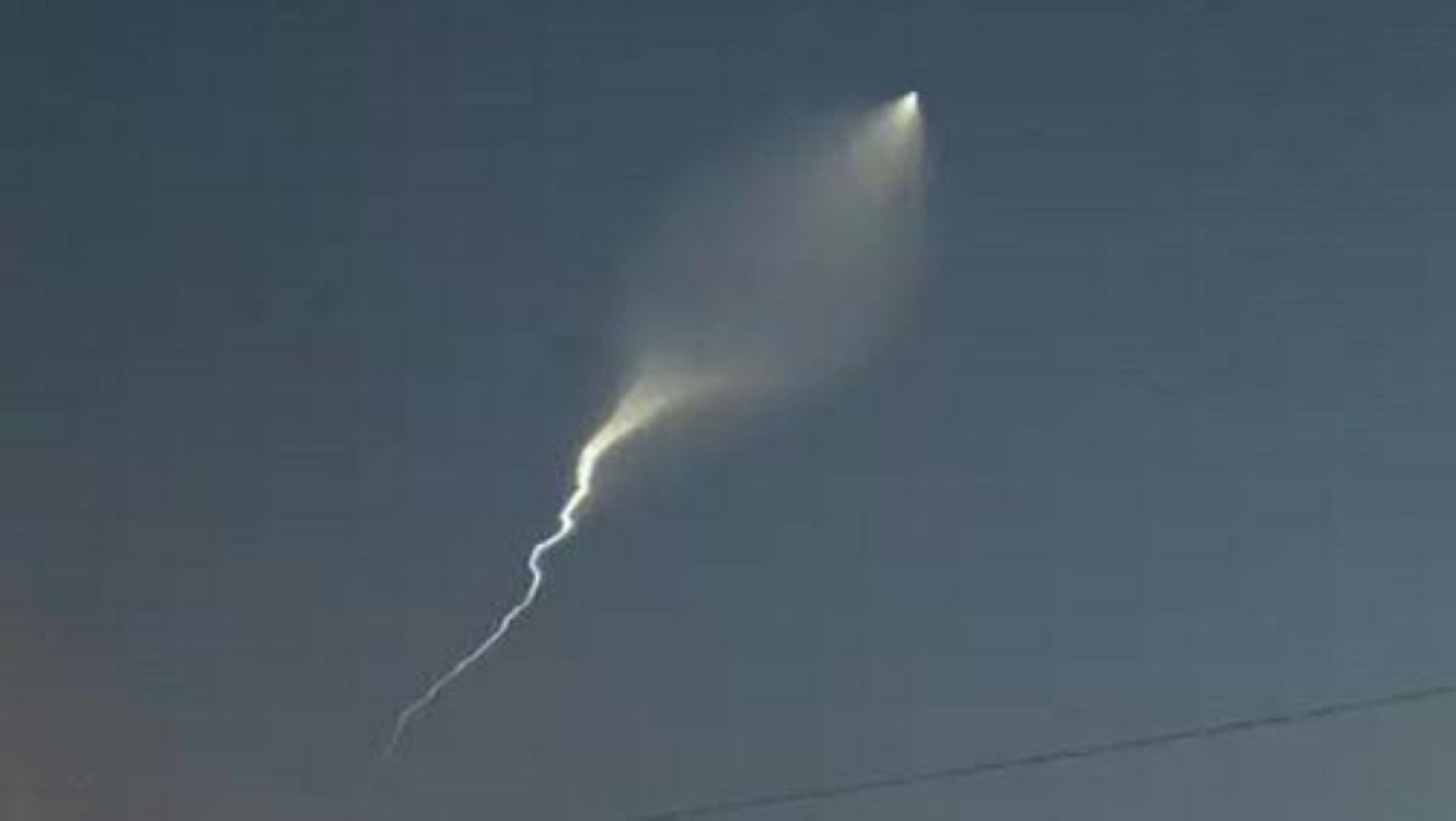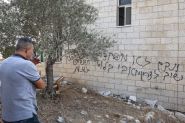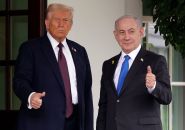- Home
- Middle East
- Day 7 of the Israel-Iran War: Key Strikes, US Weighs Military Action

©AFPTV/AFP
The Israel–Iran conflict enters its seventh day Thursday, with both nations escalating direct military action and the world watching closely for a possible US intervention. A wave of overnight airstrikes and missile attacks occurred, as diplomacy struggles to keep up with the pace of war.
Heavy Strikes Across Iran and Israel
In the early hours of Thursday, Israel launched a fresh round of airstrikes on targets in and around Tehran. The Israeli military confirmed that it had struck several key locations, including the Arak heavy water reactor, a sensitive facility tied to Iran's nuclear program. Civilians in the Arak and Khondab areas were warned to evacuate ahead of the attack.
Iranian state media reported the strike but downplayed the risk, claiming the facility had been emptied beforehand and that there was “no radiation danger.” Israel, which had previously hit sites in Isfahan, Natanz, and Karaj, is aiming to cripple Iran’s nuclear infrastructure.
Iran retaliated with a barrage of ballistic missiles, striking several sites in Israel, including a direct hit on Soroka Medical Center in Beersheba. The hospital sustained significant structural damage, and authorities asked the public to stay away while emergency crews assessed the extent of the destruction. An Israeli military source told Israeli media that roughly 20 missiles had landed in civilian zones since the start of the war.
Israeli emergency services are reporting over 140 people wounded in Thursday morning’s raids on Israel.
Missiles also hit Tel Aviv, Ramat Gan, and Holon. The Iranian News Agency stated that the attack targeted the Israeli army’s Command and Intelligence Headquarters.
Iran said Thursday the main target of the missile attack was an Israeli military and intelligence base, not the health facility.
"The main target of the attack was the Israeli Army Command and Intelligence Base (IDF C4I) and the Army Intelligence Camp in Gav-Yam Technology Park, located in the vicinity of the Soroka Hospital," state news agency IRNA said.
It said the hospital was "exposed only to the blast wave", and that the "direct and precise target" was the military facility.
At least 24 people have died in Israel so far, while Iranian officials claim over 224 fatalities—including military personnel, scientists, and civilians. The death tolls, however, have not been updated since Sunday.
Fordow in the Crosshairs
At the heart of Israel’s strategic campaign lies the Fordow uranium enrichment facility, buried deep inside a mountain and considered nearly impervious to conventional strikes. Israel does not possess the firepower to destroy the site from the air. But the US does.
Washington holds the only operational Massive Ordnance Penetrator (MOP), a 30,000-pound “bunker buster” bomb designed to demolish hardened underground targets. According to Axios, Israel is lobbying the US to use the MOP to finish the job at Fordow.
Military historian Robert Pape told the Financial Times that even the MOP might require multiple hits to achieve total destruction. “It’s never been done before in war,” he noted.
Trump Approves Plans, But Hesitates
President Donald Trump has reportedly approved operational plans to strike Iran, but stopped short of authorizing immediate action. According to CBS News and The Wall Street Journal, the US president is weighing whether a military strike would effectively dismantle Iran’s nuclear capabilities, and whether it would entangle Washington in another prolonged Middle Eastern war.
“I have ideas as to what to do, but I haven’t made a final decision,” Trump told reporters Wednesday. “I like to make the final decision one second before it’s due, because things change. Especially with war.”
US defense officials have assured the president that the MOP could neutralize Fordow, but Trump remains cautious. “We're going to be ready to strike Iran. We’re not convinced yet that we are needed,” a US official told Axios.
Divisions in Trump’s Inner Circle
Trump’s indecision has prompted unusual public criticism from within his own political base. Former advisor Steve Bannon warned that this is “not something you play around with,” while Senator Rand Paul insisted that any military action would require congressional approval. Others, like Senator Ted Cruz, voiced support for limited strikes, but firmly opposed deploying US troops.
Despite this, Trump has kept diplomatic channels open. Special envoy Steve Witkoff has reportedly been in intermittent contact with Iran’s Foreign Minister Abbas Araghchi, Axios reported. European foreign ministers will meet Araghchi in Geneva on Friday, seeking a diplomatic offset to the widening crisis.
Cyber Front
Internet access has also been severely restricted. Iran’s government confirmed it had imposed new limits to ward off cyberattacks, after an anti-regime hacker group claimed responsibility for a breach targeting Bank Sepah, a state-owned financial institution.
International Calls for De-escalation
The United Nations and global leaders are urging restraint. UN Secretary-General António Guterres called for an “immediate de-escalation.”
Putin said Thursday that a deal to end the fighting between Israel and Iran was possible, and that Israel's strikes on Iran had led to a "consolidation" of Iranian society around its leadership.
He added that he did "not even wish to discuss" the idea Israel might assassinate Iran's supreme leader Ayatollah Ali Khamenei. "We see that today in Iran there is a consolidation of society around the country's political leadership," Putin told foreign journalists, including AFP, at a televised event.
"This is a delicate issue, and of course we need to be very careful here, but in my opinion, a solution can be found," he added.
Putin said such an agreement could guarantee both Israel's security and Iran's desire for a civilian nuclear programme. "I believe it would be good for all of us together to look for ways to stop the fighting and seek ways for the participants in the conflict to find an agreement," he said.
Foreign ministers from key European powers France, Germany and Britain and the EU's top diplomat are aiming to meet their Iranian counterpart for nuclear talks in Geneva on Friday, European diplomats said.
The meeting being planned comes as European countries call for de-escalation in the face of Israel's bombing campaign against Iran's nuclear programme.
Read more



Comments